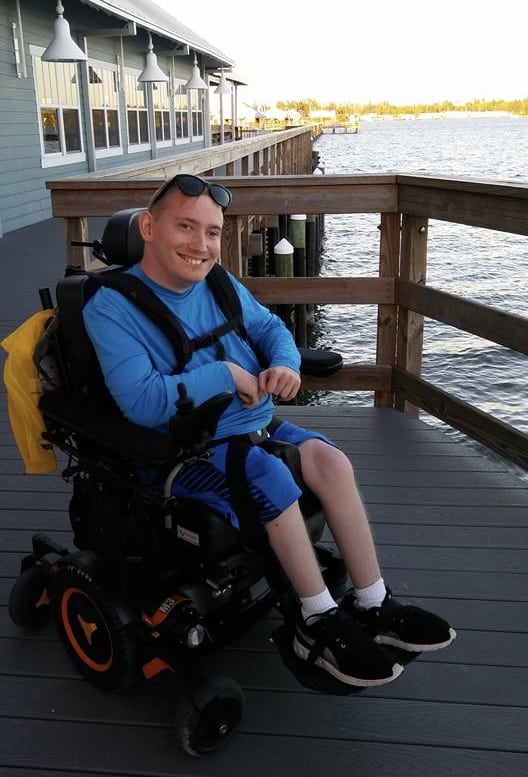
Transportation touches on every aspect of our lives – from attending school, career training, attending community activities and religious services, shopping and banking, obtaining medical care, and engaging in employment. Transportation is essential across the lifespan yet is a service that many people with disabilities are unable to access, particularly in rural areas. As transportation advocate Frank Huffman shares, “One of the biggest issues that people with a disability face is transportation. Like everyone else, we want to work and be involved in our community, but this can be a problem especially for people who use a wheelchair that does not fold or collapse because we can only be transported in an accessible van or bus. I would love to be able to get on the bus and go somewhere but there is no public transportation where I live, and this is a huge problem.” For this reason, Frank Huffman and others have joined the KentuckyWorks Transportation work group in an effort to bring awareness to the need for accessible public transit.
Kentucky ranks 44th in total state dollars spent on public transit systems. Based on per capita calculations, Kentucky falls even lower, ranking 47th in spending on public transportation – ahead of only three states (Georgia, Idaho, and Montana). Public transit is an investment in economic development and job growth. Studies note that every $1 invested in public transportation yields a $4 increase in economic returns. Yet many cash-strapped rural communities lack the local funds to be able to draw down state and federal transportation dollars. It is not a matter of not needing the service, but rather not being able to budget for public transit.

The Transportation Initiative housed at the University of Kentucky’s Human Development Institute has engaged with targeted rural communities to increase dialogue around unmet transportation needs, working alongside partners that include high school transition staff, employment specialists, vocational rehabilitation counselors, employers, and local government leaders. Over the course of a year, we hosted a series of community conversations in Breathitt County, Kentucky – an Appalachian community with one of the highest rates of disability in the nation. Employment specialists shared stories of finding competitive, paid employment for job seekers who were unable to accept or sustain the position due to a lack of transportation. Local businesses shared their difficulty in recruiting the talent needed to fill positions or retain work force related to transportation challenges. Community leaders including the mayor and county judge executive participated in the community conversations, as well as the regional social service agencies. The vision is a partnership that would lead to the establishment of a city-wide transit service through the community action agency.
Technical assistance was provided in the neighboring community of Montgomery County, Kentucky – a pilot site for KentuckyWorks outreach in the school system. We offered several trainings on transportation to staff at the high school working with transition aged youth. In addition, we made home visits to a number of individuals to better understand the difficulties of living and working in a community lacking accessible transportation. On July 8, 2020 Montgomery County initiated a county-wide service called MoCo Transit. Administered through the Gateway Community Action Program, the accessible service provides rides at just $1 per trip. Next steps in the community include encouraging ridership and connecting the service with employers and the work force. We are planning a Spring transit training workshop at the high school, where graduating students can learn to use the MoCo Transit service and arrange a ride to a practice job interview.
While public transit infrastructure is critical, it is only one side of the equation. There are numerous opportunities in independent driving, driver training programs, modified vehicles, ride sharing services, carpooling, and transportation services available through various state programs and grants. We found that providing referrals on the options, while helpful, was sometimes not enough to get folks up and running. Many needed assistance in navigating eligibility requirements, service options, and responding to denials in order to obtain service. Support was needed not just for the applicant, but also those frequently providing assistance – family members, employment specialists, social workers, case managers, school staff, and other service providers. As a result, we created a Transportation Initiative web page at: https://transportation.hdiuky.org/ to provide comprehensive resources on transportation topics. Each transportation topic offers a series of video trainings, audio files, and handouts in order to guide the user through services. The website provides screen reading technology and other accessibility options. An important aspect of increasing the transportation capacity of the state lies in educating service providers and professionals so each possible avenue for transportation is considered.


